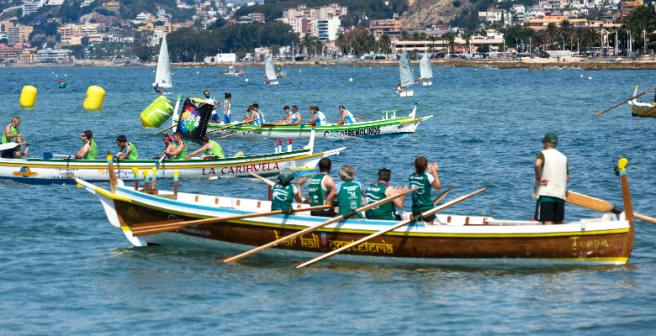Your Research. Your Life. Your Story.
A magnetic community of researchers bound by their stories
Every researcher has a story. What’s yours?
Staying afloat: Pursuing a PhD while trying to win a boat race

In the last year, I’ve been trying to juggle my role as President of the Cambridge University Women’s Boat Club (CUWBC) with the second year of my PhD, in which I’m researching the role that parental input plays in the development of cognitive and non-cognitive skills in primary school children.
I didn’t plan to spend the past year simultaneously managing the two tasks, but following a disappointing loss in the 2016 Boat Race, I decided that I wanted to do everything in my power to put an end to Cambridge’s 5-year losing streak. I was encouraged by teammates to run for President of CUWBC, and with that decision began one of the busiest years of my life. Although I’ve rowed for 8 years, this is the first time I’ve combined the 20+ hours a week of training with the obligations of leading a squad of 33 athletes.
For outsiders, it might seem that I easily balanced these roles – after all I recovered from pneumonia, won a boat race, and am mostly on track with my academic work. But the truth is, I feel as if I’m constantly behind schedule and barely keeping up appearances. So, in this blog post I’m going to share some reflections about what this rather overcommitted schedule brings to my PhD life. These take the form of some tips and tricks to make the most of your time at Cambridge.
1. Having passions outside your research is key to staying engaged:
The act of juggling my two passions—rowing and research—helps me to stay grounded in other aspects of my life, and each provides a welcome break from the other. Rowing forces me to take care of myself physically and emotionally. The team’s training schedule means I get outside and see my friends every day, no matter how busy I am, or how pressing a deadline is. To manage the physical requirements of training, I also have to eat properly and keep a regular sleep schedule. These behaviors make me consistently productive and help me stick to a routine. Because I know I have limited time to complete my research, and can’t afford to put life on hold to cram things in before a deadline, I am forced to set clear goals and stick to them.
On the other hand, my PhD gives me the time alone that I crave as an introvert and a chance to lose myself working with data. Because time is so precious, I look forward to every moment I spend reading about my research or writing code for my analysis.
2. Don’t limit yourself by perfectionism:
This year, the biggest thing I’ve learned is that sometimes, in order to get everything done, compromises have to be made. In the high-achieving world of Cambridge, it is tempting to only take on tasks that you are able to completely commit to. By doing this, you limit yourself to only a tiny piece of the Cambridge experience. Accepting that I won’t be able to get things done perfectly allows me to take on more tasks.

Rowing
3. Make others understand your goals and priorities, so they can support you:
Through my hectic schedule, I’ve realized the importance of keeping those you work with in the loop about your activities. This way, people will recognize that your multiple goals are not necessarily competing against each other and can help you find ways to balance them. For example, I’m truly blessed to have a supervisor who supports me in my rowing obsession. When mapping out my research goals for the year, she accepted that for a few weeks in March, my PhD might take the backburner while I chased a crazy dream of winning a race. With her help, I planned a way to overcome this lull in my work and to use it as part of my “vacation” time so I could stay on track with my work. Through open communication, I’ve seen how my supervisor has genuinely wanted what was best for me as a person, not just for my PhD.
On the same token, there are times when rowing has to be modified to focus on my goal of completing my PhD. This autumn I’m in Canada to complete my fieldwork and will miss the first 2.5 months of training and selection for the Cambridge team. Though I could take the year off rowing, or modify my research to fit the rowing schedule, I didn’t want to sacrifice either rowing or research. Instead I found a way to work with the coach to join the squad late, and make both goals possible.

PhD work
4. Have a plan for each day and write it down:
Being a student-athlete is incredibly hectic, with 12 training sessions a week slotted in around my PhD requirements. With that much to do it’s easy to just get overwhelmed or let one small task consume an entire day. In an attempt to avoid this, each evening, I spend 10 minutes scheduling the next day into 30-minute chunks. Don’t worry if the day doesn’t go to plan, it’s just a starting point.
For me, scheduling serves an added benefit of giving me ownership over my own time. Many people assume that the flexibility of a PhD student’s schedule means I can always fit in extra tasks to help them, or shift my schedule around theirs. Without structure it’s easy to find yourself at the mercy of others. I find that once I have written down a task it is a lot easier to remind myself that I am in fact ‘busy’ and cannot just drop everything.
5. Fake it ‘til you make it:
This is perhaps my favorite piece of advice for any aspect of life. I interpret it as a combination of “just keep going” and “everyone else is just as scared as you are.” In the high performing environment of Cambridge it is easy to see all the successes of those around you and think that people have it sorted. But remember, others have their own frustrating failures and hours seemingly wasted on the wrong path in research.
Learning to realize that things are not always as they appear is part of the PhD experience. On the surface, I might look like I have it all. My Facebook and Twitter are filled with posts about winning the Boat Race, presenting at conferences or otherwise “succeeding” at life, but there is always more going on behind the scenes. In between the phenomenal highs of my time at Cambridge there have also been some lows. With the exception of nearly sinking on the Thames, these moments are mostly hidden from public view. Just because we don’t advertise them, doesn’t mean they don’t happen.
By focusing on making the most of each day, and with the support from my colleague Fitzwilliam, friends, and teammates, I’ve managed to get a lot out of my first two years at Cambridge. I have learned to accept failure from time to time and not strive for perfectionism, and with these lessons in mind I will hopefully get even more out of my final year of research!

Ashton Brown
At the time of the original publication, Ashton Brown (@smAshtonCAN) was a third year PhD student at the Faculty of Education, researching the role that parenting behaviours play in the development of cognitive and non-cognitive skills in primary school children. This story was first published on October 10, 2017, on the FERSA Blog run by graduate students at the Faculty of Education in Cambridge (available here) and has been republished here with permission.

Comments
You're looking to give wings to your academic career and publication journey. We like that!
Why don't we give you complete access! Create a free account and get unlimited access to all resources & a vibrant researcher community.

Your Research. Your Life. Your Story.
A magnetic community of researchers bound by their stories





